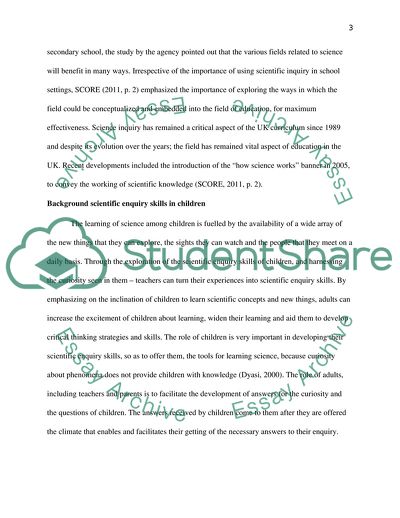Cite this document
(The Nature of the Scientific Enquiry Skills Developed by Children Term Paper, n.d.)
The Nature of the Scientific Enquiry Skills Developed by Children Term Paper. Retrieved from https://studentshare.org/education/1829365-a-discussion-of-the-nature-of-scientific-enquiry-skills-and-their-role-in-childrens-learning-in-science
The Nature of the Scientific Enquiry Skills Developed by Children Term Paper. Retrieved from https://studentshare.org/education/1829365-a-discussion-of-the-nature-of-scientific-enquiry-skills-and-their-role-in-childrens-learning-in-science
(The Nature of the Scientific Enquiry Skills Developed by Children Term Paper)
The Nature of the Scientific Enquiry Skills Developed by Children Term Paper. https://studentshare.org/education/1829365-a-discussion-of-the-nature-of-scientific-enquiry-skills-and-their-role-in-childrens-learning-in-science.
The Nature of the Scientific Enquiry Skills Developed by Children Term Paper. https://studentshare.org/education/1829365-a-discussion-of-the-nature-of-scientific-enquiry-skills-and-their-role-in-childrens-learning-in-science.
“The Nature of the Scientific Enquiry Skills Developed by Children Term Paper”. https://studentshare.org/education/1829365-a-discussion-of-the-nature-of-scientific-enquiry-skills-and-their-role-in-childrens-learning-in-science.


